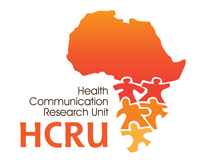Azevedo, F., Pavlovi?, T., Rego, G. … Watermeyer, J., et al. (2023). Social and moral psychology of COVID-19 across 69 countries. Scientific Data, 10, 272. [WoS]
de Lange, S., Muller, D., & Dafkin, C. (2023). The relationship between balance and urinary cortisol and neopterin in autistic children. Comprehensive Psychoneuroendocrinology, 16, 100216. [Scopus]
Gallant, A., Watermeyer, J., & Sawasawa, C. (2023). The teletherapy experiences of South African speech-language therapists during the COVID-19 pandemic: A qualitative survey. International Journal of Language and Communication Disorders, 58(5), 1468-1480. [WoS]
Kanji, A., Watermeyer, J., Ismail, M. (2023). Audiology students’ practices and perspectives of their communication skills: The impact of a brief intervention. Speech, Language, and Hearing, 26, 31-39. [Scopus]
Madonsela, S., Ware, L., Scott, M., & Watermeyer, J. (2023) The development and use of adolescent mobile mental health (m-mhealth) interventions in Low-Middle-Income Countries: a scoping review. South African Journal of Psychology, 53(4), 471-483. [WoS]
Mills, L., & Watermeyer, J. (2023). A meta-ethnography on the experience and psychosocial implications of providing elective abortion care. Social Science and Medicine, 38, 115964. [WoS]
Scott, M., Watermeyer, J., & Wessels, T.M. (2023). A balancing act: Non-directive communication, risk perceptions, and meeting patient needs in genetic counseling: A South African case study. Journal of Genetic Counseling. [WoS]
Variava, T., & Watermeyer, J. (2023). A systematic review exploring the psychosocial factors affecting adolescent access to HIV treatment services. Adolescents, 3, 10-40. [DOAJ]
Van Bavel, J. J., Cichocka, A., Capraro, V., Sjåstad, H., Nezlek, J. B., Pavlovi?, T., …Watermeyer, J.,... & Jørgensen, F. J. (2022). National identity predicts public health support during a global pandemic. Nature Communications, 13(1), 517. [WoS]
Watermeyer, J., Etheredge, H., Fabian, J., & Tager, S. (2022). Emphasising Organisational Routine: A Qualitative Study of Patient and Health Professional Experiences of Inpatient Oncology Care. Healthcare, 10, 2145. [WoS]
Watermeyer, J., & Kanji, A. (2022). 足球竞彩app排名s' reflections during training workshops on communication and information exchange in audiology consultations: an exploratory qualitative study. American Journal of Audiology, 31(3), 541-551. [WoS]
Watermeyer, J., & Neille, J. (2022). The application of qualitative approaches in a post-colonial context in speech-language pathology: A call for transformation. International Journal of Speech-Language Pathology, 24, 494-503. [WoS]
Watermeyer, J., Scott, M., Kapueja, L., & Ware, L. (2022). To trust or not to trust: An exploratory qualitative study of young people’s perceptions of vaccines in Soweto, South Africa. Health Policy and Planning, 37, 1167-1176. [WoS]
Wieringa, T. H., Pinker, I. H., Jain, N., Goulding, R., van Klaveren, C. W., Lu, W., Lanzen, C… & Scott, M. (2022). Fragmented world, connected community: success factors of the first online EACH Summer School for early-career researchers. Patient Education and Counseling, 105, 257-259. [WoS]
Watermeyer, J., Kater, K. A., & Khumalo, G. (2022). Experiences of a pediatric speech-language teletherapy practical at a South African university training site during COVID-19: an exploratory qualitative study. The Clinical Supervisor, 41(2), 149-166. [Scopus]
Variava, T., & Watermeyer, J. (2022). A systematic review exploring the psychosocial factors affecting adolescent access to HIV treatment services. Adolescents, 3(1), 10-40. [DOAJ]
Pavlovi?, T., et al. (2022). Predicting attitudinal and behavioral responses to COVID-19 pandemic using machine learning. PNAS Nexus, 1(3), pgac093.
Van Bavel, J. J., Cichocka, A., Capraro, V., Sjåstad, H., Nezlek, J. B., Pavlovi?, T., …Watermeyer, J.,... & Jørgensen, F. J. (2022). National identity predicts public health support during a global pandemic. Nature communications, 13(1), 517.
Wieringa, T. H., Pinker, I. H., Jain, N., Goulding, R., van Klaveren, C. W., Lu, W., Lanzen, C… & Scott, M. (2022). Fragmented world, connected community: success factors of the first online EACH Summer School for early-career researchers. Patient Education and Counseling, 257-259.


